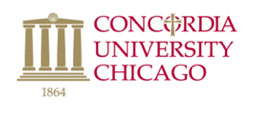

Pursuing your Doctorate in Sports Leadership is a serious endeavor, requiring an uncompromising desire to push your knowledge beyond many of your peers.
We are here for it.
Our 100% online EdD program is set up for your success.

Take the Next Step in Your Sports Career Development
When Toronto Raptors Head Coach Nick Nurse wanted to increase his knowledge of Sports Leadership, he came to CUC.
Our online program fit his busy schedule, just like it will fit yours. And while you may not coach a team to an NBA Championship, you will reach new heights in your sports career.
Many of our students are actively working in the NFL, NHL, NBA, MLS, MLB, and minor leagues as they pursue their doctorate online. These pillars of the sports community aren’t interested in giving up their career to pursue a degree. Instead, they’ve married both concepts – allowing them to apply their new knowledge to the workplace in real-time.
- The program is offered 100% online
- Interdisciplinary degree programs
- Nationally recognized faculty
- No residency or on-site visit requirements
- Concordia Tuition Guarantee
- Fall, Spring, and Summer start dates available
- $711 per credit hour, plus the cost of books

- Application for admission: apply online
- Writing sample that demonstrates your ability to write in a scholarly manner and at a level typical of graduate work. A paper from your master's program would be most appropriate. This sample should approach, but not exceed, five pages in length.
- Resume/Curriculum Vitae
- Letter of application, including statement of career goals and research interests.
- Transcripts: provide one official, sealed transcript from each institution through which a degree was earned.
- International transcripts: all foreign transcripts must be evaluated by a Concordia-approved international credentialing service, such as WES (World Education Services) or ECE (Educational Credential Evaluators).
- Two letters of recommendation. Letters should be from individuals able to comment on the applicant's academic proficiency, personal character, competence, and effectiveness in professional work.
- All documents should be submitted to:
- Concordia University Chicago
- College of Graduate and Innovative Programs
- Addison Hall, Office 158
- 7400 Augusta Street
- River Forest, Illinois 60305-1499
- Application Documents may also be emailed to CUC@smww.com or faxed to (708) 209-3454.
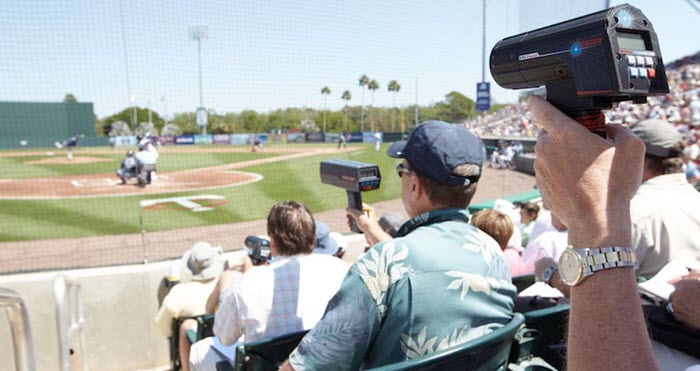
- Master's Degree in Health Science, Sports Leadership, or related field with a minimum of 3.0 GPA on 4.0 scale.
- No GRE required.
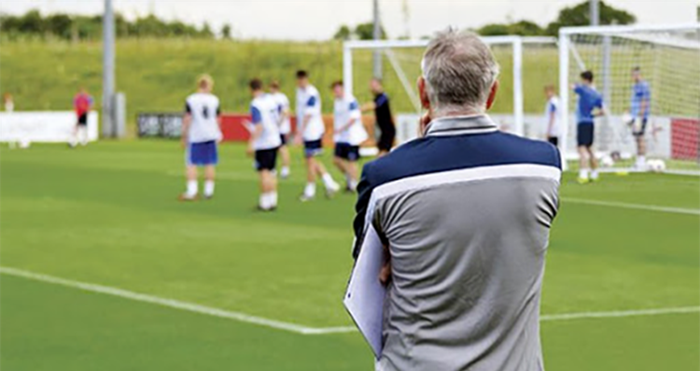
EdD Sports Leadership Curriculum
| COURSE NUMBER | COURSE TITLE | CREDITS |
|---|---|---|
| SPML 6030 | Sports Leadership and Ethics
|
3 |
| SPML 6090 | Sports Administration
This course is designed to emphasize the practical application of concepts, principles, and practices between sports organizations and community associations as it relates to the role of sport leader and administrator. Students will be required to review course materials, participate in discussion forums, and conduct research to acquire a thorough understanding of sports administration principles and theories. |
3 |
| LDR 6030 | Leadership Theories and Professional Practice
In this course, students explore and examine contemporary and classical leadership theories and their application to a variety of professional settings; students assess and evaluate organization’s leadership platform, policies, and professional practices. |
3 |
| LDR 7010 | Developing Organization's Human Capital
|
3 |
| LDR 7020 | Leading the Knowledge Enterprise
Leading the Knowledge Enterprise is a course that introduces students to the exciting and sometimes hard to define field of knowledge management. The role of the leader is emphasized, especially as it relates to identifying and leveraging the intellectual capital of an organization; promoting and facilitating knowledge sharing and innovation; intellectual assets, knowledge management strategy, knowledge management cycle, and knowledge taxonomies. |
3 |
| LDR 7030 | Promoting and Leading Change
Effective change leadership requires an understanding of the basic principles and practices underlying innovation, change processes, and sustainability in organizations. The focus of LDR-7030 is initiating, implementing, and ensuring continuation of change as a key leadership challenge. Various change theories and principles are examined with an emphasis on the leader’s role in capacity building, creativity, organizational strengths, and style. Participants are encouraged to develop a more situated and experience informed approach to change in the organizational front lines. |
3 |
| Pick four: | ||
| LDR 6010 | Pursuit of Leadership Excellence
In this course, concepts, skills, and strategies for the enhancement of personal and professional leadership are examined. One’s fundamental leadership beliefs and assumptions are explored along with organizational performance and achievement. |
3 |
| LDR 6020 | Critical Issues in Leadership
This course is designed to provide students with an overview of the critical issues faced by leaders in every organization in the 21st century. Current, relevant, and timely resources are explored to provide students with opportunities to analyze both organizations and their leadership. |
3 |
| LDR 7040 | Creating & Leading a Learning Organization
In this course, students explore and examine the five disciplines of learning organizations; characteristics of learning organizations, growth cycles, building capacity, and sustainability. |
3 |
| LDR 7050 | Strategic Forecasting and Planning
This course examines strategic planning models, forecasting methods, trend analysis, futuring, problem-based learning, return on investment, organizational health and effectiveness, cost/benefit analysis, research, and planning. |
3 |
| SPML 6010 | The Essentials of the Law in Sports
This course introduces legal issues, and professional ramifications in field of sports management through the examination of regulations, government intervention, and ethically pertinent scenarios. This course allows learners to acquire a thorough understanding of legal considerations, which affect the interaction of league officials and athletes, their professional behavior, and what laws are established to protect their rights and assure they accountable for their actions. |
3 |
| SPML 6020 | The Economics of Sport
The domain of sports, most notably, professional sports, has been elevated to one of the highest rungs of the financial ladder by having entered the world of professional entertainment industry. In the 21st century, sport has secured its place as one of the paramount forms of entertainment from Friday night high school football games to the Olympic venues. To function as an administrator within this profession, it is imperative to have a comprehensive understanding of the dynamic role of economics. In this course, students explore and examine the concepts and models of micro and intermediate economics as related to the business of sport. |
3 |
| SPML 6040 | Sports Finance
In this course, students develop a framework with an in-depth analysis of the various tools, techniques, ratios, formulas, and other finance-related information, complex financial concerns in the sports workplace. |
3 |
| SPML 6050 | Leading in Time of Change
This course introduces students to the valuable change management process in the dynamic world of sports leadership and management, preparing them to use and apply these skills practically with an understanding of varying concepts, theories, and opinions. |
3 |
| SPML 6060 | Diversity in Sports
This course is designed to teach students what diversity is and how it applies to sports in general and more specifically to gender, race, and various cultures. The course will help learners understand the unique challenge for sports leaders to better understand diversity and through this understanding help “level the playing field.” |
3 |
| SPML 6070 | Sports Promotion
Explore and examine the relationship between the mass media and the sports industry. Topics include sports broadcasting, print media, and the development of public relation tools such as media guides and press releases, effective principles, theories, practices, and methods involved with all aspects of sports communications. |
3 |
| SPML 6110 | Facilities and Events Management
Examines the principles and practices necessary to plan, develop, promote, operate, and maintain sporting events, athletic centers, and recreational facilities. Emphasis is on issues concerning personnel, finance, profitability, security, concessions, convention centers, event scheduling, equipment management, facilities maintenance, and topics related to liability and risk management. |
3 |
| SPML 6120 | Dynamics of Coaching
Coaching requires leadership abilities, social awareness, expertise in athletic components, and the ability to transcend these principles through recognized methodologies. This course focuses on the major coaching theories and models, methods, practices, and outcomes. Topics include study of first principles in coaching, coaching cases and analyses, great coaches, coaching decision making, and other contemporary issues. |
3 |
| SPML 6130 | Social and Historical Foundations of Modern Sport
Sports are integrated into society and enjoyed throughout the world on a cultural and competitive level. This course examines the social, political, cultural, philosophical, psychological, historical, and practical aspects of sport history and evolution. |
3 |
| SPML 6000 | Organization and Administration of Recreation and Leisure Programs
This course provides an overview of principles and practices related to effectively managing a recreation and leisure program. Issues of branding, marketing, media, and personnel selection and development are considered. |
3 |
| SPML 6150 | Philosophy & Educational Value of Sport
This course will build on Foundations & Theoretical Perspectives and provide students academic opportunities to identify and establish their personal and professional ideals and dispositions in relation to the academic literature and the mission/vision of their educational, recreational, and professional setting. Academic/co-curricular connectivity of sport and society. |
3 |
| SPML 6160 | Assessment and Evaluation of Recreation and Leisure Programs
This course explores and examines the purpose and added value of assessment and evaluation in the recreation/leisure settings. Basic procedures and designs are used to develop a professional program evaluation/assessment plan. Cycle of evaluation/assessment, needs assessment, program planning and design, outcomes, objectives, findings, reporting for data driven decision-making. |
3 |
| SPML 6170 | Current Trends in Recreation and Leisure
This course explores and examines the purpose and added value of assessment and evaluation in the recreation/leisure settings. Basic procedures and designs are used to develop a professional program evaluation/assessment plan. Cycle of evaluation/assessment, needs assessment, program planning and design, outcomes, objectives, findings, reporting for data driven decision-making. |
3 |
| SPML 6180 | Foundations and Theoretical Perspectives of Recreation and Leisure Programs
This course explores and examines the purpose and added value of assessment and evaluation in the recreation/leisure settings. Basic procedures and designs are used to develop a professional program evaluation/assessment plan. Cycle of evaluation/assessment, needs assessment, program planning and design, outcomes, objectives, findings, reporting for data driven decision-making. |
3 |
| COURSE NUMBER | COURSE TITLE | CREDITS |
|---|---|---|
| RES 7605 | Quantitative Research
An introduction to quantitative analysis of data. Statistical software will be used to explore descriptive and inferential statistics using both non-parametric and parametric techniques. |
3 |
| RES 7700 | Qualitative Research
An examination and application of qualitative research approaches with a focus on research design, the role of the researcher, data collection and analysis, and writing from a qualitative perspective. |
3 |
| RES 7900 | Research Design
Principles of research theory, methods, inquiry, problem formulation, data collection, literature searches, and ethical considerations. Emphasis on how to design a doctoral-level research study. |
4 |
| COURSE NUMBER | COURSE TITLE | CREDITS |
|---|---|---|
| EDL 7140 | Organizational Change
Application of change theory to large and small organizations. Leadership strategies for successful change implementation. |
3 |
| EDL 7120 | Research-Based Decision Making
|
3 |
| EDL 7211 | Policy Analysis (non K-12)
Educational policy-making at the macro (national, regional and state) and micro (local and institutional) levels. Selected educational policies. |
3 |
| FPR 7300 | The Philosophy of Scientific Knowledge
|
3 |
| COURSE NUMBER | COURSE TITLE | CREDITS |
|---|---|---|
| COMP 7000 | Comprehensive Exam (fee)
|
0 |
| DIS 7010-7030 | Dissertation
|
9 |
- Only 1.68% of the U.S. population over age 25 has their doctorate degree. Let that sink in a moment. Just 1.68%!
- An EdD is the differentiator you’ve been looking for, a way to stand out in the competitive sports landscape and show you have taken your career preparation seriously. By receiving your Doctorate, you are showing a dedication to you craft that not many others can boast.
- Concordia University Chicago is committed to providing students with a high-quality education at a reasonable cost. Our Doctoral degree program costs an unheard of at $711/credit hour, which is 1/3 the cost of competitors' programs. Because our programs are online, we can save on many operational costs – allowing us to pass those benefits on to you.
- Our EdD in Sports Leadership program is a win for your career, and your wallet.
| EDD SPORTS LEADERSHIP | COST |
|---|---|
| Tuition (Per Credit Hour) | $711 |
| Technology Fee (Per Credit Hour) | $15 |
| Books (Approximate) | $1,625 |
| TOTAL | $45,911 |

What Can You Do With a EdD in Sports Leadership?
The Sports Industry Needs More Business Leaders – You Can Fill That Need

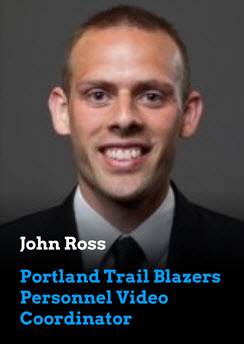


Every day businesses are troubled by complex decisions and are often saddled with executive staff unable to make tough choices based on anything but their hunches and instincts.
As a student in the EdD in Sports Leadership program, you will be trained to use research and data to understand and evaluate logical steps toward thoughtful business decision making. You will become the asset that sports organizations need, qualified to lead and manage teams through the intricacies of the sports business landscape.
This degree program will qualify you for roles in:
- Education
- Research
- Sports Agency
- Player Personnel
- Business Operations
- Media, PR, and Communications
- Community Relations
- Front Office Management
- Sports Marketing
- Athletic Director
- Sports Information Director
- Compliance Officer
- NCAA Academic Advisor
- Director of Fundraising and Development
- Coaching
- Professor of Sports Management
Lucky for you, you’ll also learn from Dr. Lynn Lashbrook, who is one of the most connected men in the sports industry and is dedicated to helping you find the right career opportunities after you complete the program.
Our EdD in Sports Leadership program will open doors for your sports career – make your move today and invest in your future!

Tuition Guarantee
CU Chicago's tuition guarantee program is an important way we help keep tuition affordable and predictable, so you know what the total cost of your education will be. We guarantee your tuition will remain the same and never increase while earning your degree.*

Accelerated Program
Complete your Doctorate degree in as little as 3 years.

100% Online
All of our graduate Sports Leadership programs are completely online and do not require any campus visit.

Transfer - Friendly
Up to 50% of the required course work may be transferred from another institution. Coursework from another institution will be reviewed on a case-by-case basis by graduate admission office .
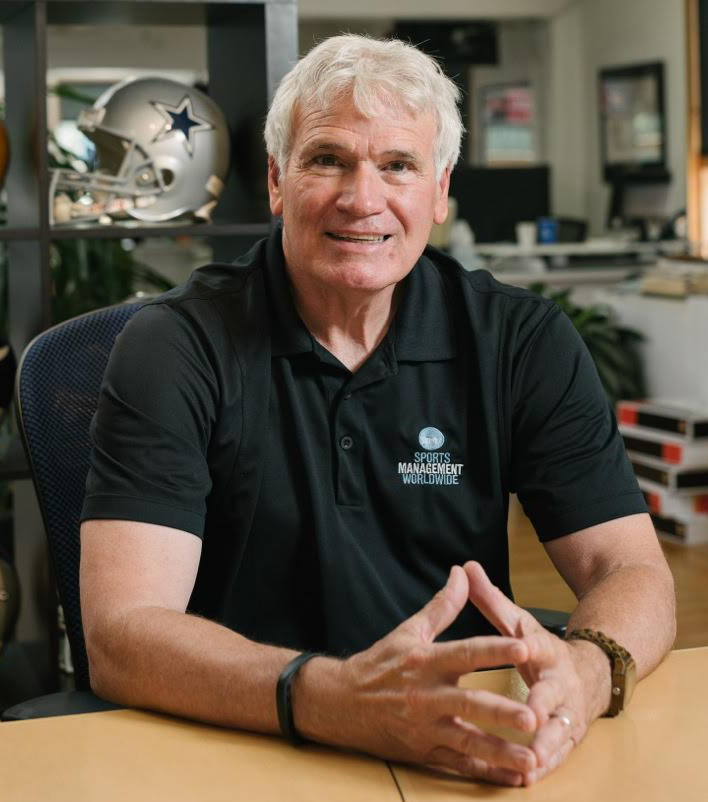
- Lynn Lashbrook, EdD
EDUCATION:
- EdD, Kinesiology. University of Northern Colorado
- MEd, Health and Physical Education. Springfield College
- BS, Health and Physical Education. Fort Hays State University
- Donna Blaess, PhD
EDUCATION:
- PhD, Educational Psychology. University of Iowa
- MA, Guidance and Counseling. University of South Florida
- BA, English and History. University of Tampa
- Paul Bucchi, PhD
EDUCATION:
- PhD, Business Administration with Electronic Commerce Specialization. Northcentral University
- MBA, Management Information Systems Specialization. Northcentral University
- BS, Advertising and Marketing Specialization. University of Florida
- PhD, Business Administration with Electronic Commerce Specialization. Northcentral University
- Kathryn Hollywood, PhD
EDUCATION:
- PhD, Administration & Supervision, Concentration in Church Organizational Leadership. Fordham University
- Professional Diploma, Pastoral Counseling. Fordham University
- MA, Theology. St. John’s University
- MA, Clinical Psychology. St. John’s University
- BA, Psychology. St. John’s University
- Juan Vives, PhD, EdD
EDUCATION:
- PhD, Organizational Leadership Concordia University Chicago, Organizational Leadership
- EdD, Educational Leadership Northcentral University, Educational Leadership
- MEd, School Supervision and Administration Bank Street College of Education
- MS, Reading, State University of New York at Albany
- BA, State University of New York at Albany
- Sharon Beverly, PhD
EDUCATION:
- PhD Leadership in Higher Education
- MS Education, Queens College
- BA Physical Education
- Sandra Svoboda, EdD
EDUCATION:
- EdD Educational Leadership, Northcentral University
- MA Educational Policy and Leadership, The Ohio State University
- BGS, Literature, Science and Art, The University of Michigan
- Micheal Heifferon, PhD
EDUCATION:
- PhD — Motor Learning/Orthopedic Sports Medicine, The University of Toledo
- MS – Strength Training and Athletic Conditioning, The Ohio State University
- MBA — Healthcare Administration, Baker College, Flint Michigan, MI
- BA – Physical Education, The Ohio State University
Bio:
- A native of Rochester New York, Michael Heifferon completed his Bachelor of Education and Master of Science at The Ohio State University. He earned his Doctorate of Science from The University of Toledo and Masters in Business Administration from Baker College. Over the past 29 years as an athletic trainer, Michael has worked with the New York Yankees, The Ohio State University, The United States Olympic Committee and United States Anti-Doping Agency. Additionally, during that period of time Michael was selected to participate as a Doping Control Officer for the 1996 Atlanta Olympic Games and the 2010 Vancouver Winter Olympics.
- Additionally, from 1992 until present Michael has remained a health care administrator with a career in strengthening and leading all areas of operations within ambulatory, orthopedic, primary care, occupational, pain management and sports medicine practices. His diverse healthcare management experience includes achieving bottom line objectives, improving organization communication, and negotiator with success in securing advantageous contracts with strategic business partners, professional staff, insurance providers, and vendors. Other areas of interest and strengths include marketing, financial budgets, joint ventures, benchmarking and strategic planning and implementation.
- Melvin Landry, Jr., MBA
EDUCATION:
- MBA, Marketing, University of New Orleans
- MS, Agricultural Economics
- BS, Agricultural Economics



